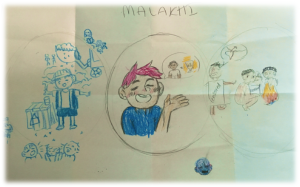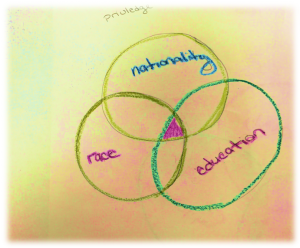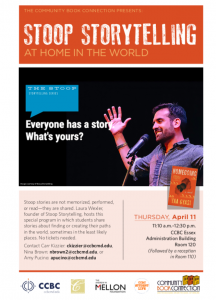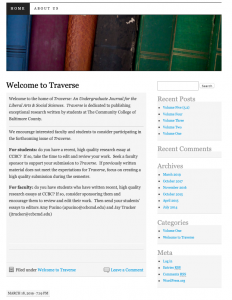Teaching is my heart. Classroom happenings below:
- contemplative practice in the classroom
“Contemplative practices are widely varied… They come from traditions all over the world. They all cultivate a critical, first-person focus, sometimes with direct experience as the object, while at other times concentrating on complex ideas or situations. They allow placing ourselves at the heart of our professional lives and for our students to find themselves in the heart of their own education. Contemplative methods incorporated into daily life act as a reminder to connect to what we find most meaningful, and can help us quiet our minds in the midst of action and distraction.” ~From The Center for Contemplative Mind and Society
contemplative drawing: This practice helps students focus and connection their own experience to course materials. The below drawings resulted from students prompted to reflect on the meaning of “social construction,” “intersectionality,” and “privilege”.


- storytelling: Storytelling is an effective pedagogy (and andragogy!) for teaching and learning complex topics such as race, class, gender, sexuality, and more.
student stories: In my Race and Culture class, students create and share their own stories. Below is a sampling of stories from students who agreed to share their wisdom.
Jonna Nunez on Gender and Religion:
Jimmi Hudson on Race and Childhood Athletics:
Flin Ing on Race, Ethnicity, and the Hyphen:
Baltimore Stoop Stories showcased CCBC work! Stoop stories are not memorized, performed, or read—they are shared. Laura Wexler, founder of Stoop Storytelling, hosted this special program in which students shared stories about finding or creating their paths in the world, sometimes in the least likely places.

- community-based learning and research
“Community engagement describes collaboration between institutions of higher education and their larger communities (local, regional/state, national, global) for the mutually beneficial exchange of knowledge and resources in a context of partnership and reciprocity.” ~From The Carnegie Foundation for the Advancement of Teaching
community-based learning and research on homelessness: CCBC is committed to building connections with the community. Many classes integrate service-learning. This clip showcases the work CCBC has done around homelessness. Students in my Sociology/English as a Second Language Learning Community explored poverty across the world, and students in my Honors Sociology course engaged in needs assessment research with a homelessness healthcare organization that shares a border with CCBC.
- academic research & writing
At CCBC, students can conduct primary or secondary research and submit for publication in our online journal, Traverse: An Undergraduate Journal for the Liberal Arts & Social Sciences. Traverse is dedicated to publishing exceptional research written by students at The Community College of Baltimore County.


